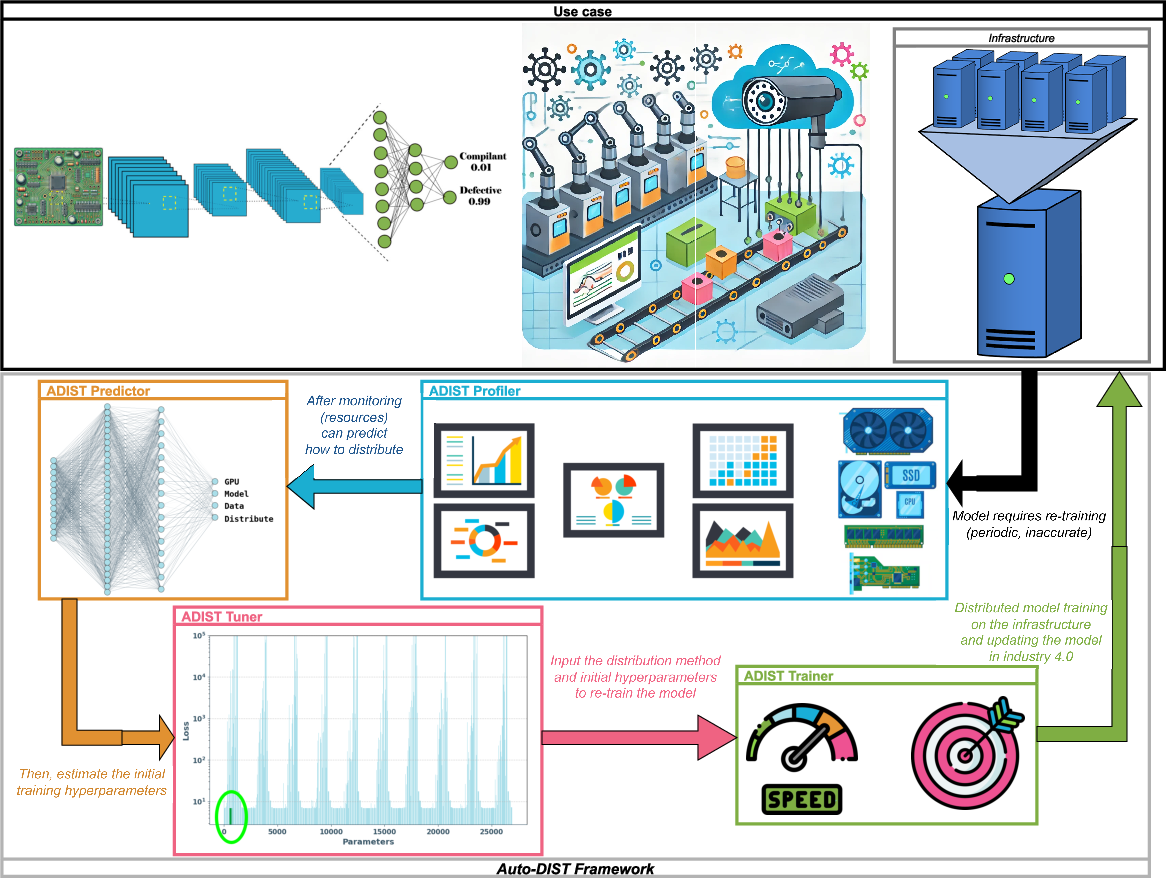Jean-Sébastien Lerat, a Belgian computer scientist, interested in Cybersecurity and Artificial Intelligence (AI). Armed with a Master's degree in Computer Sciences (2012) from the University of Mons (UMONS), Belgium, John's academic journey saw him venture into additional coursework at University of Brussels (ULB) and University of Louvain-La-Neuve (UCL), further enriching his knowledge base.
His career trajectory has been marked by a deep commitment to education. Starting as a teaching assistant at ULB (2012), he discovered his passion for teaching, eventually leading to his current role as an Associate Professor (2015) at Haute École en Hainaut (HEH). His dedication to education is reinforced by his attainment of the "Certificat d'Aptitude Pédagogique Approprié à l'Enseignement Supérieur" (2017) from UCL, a certification required in Belgium.
His research interests span two primary domains. At UMONS, he delves into the cutting-edge fields of distributed deep learning and Industry 4.0, pioneering innovative technologies with practical applications. In parallel, his work at HEH centers on malware analysis with artificial intelligence, addressing the ever-evolving landscape of digital threats.
Continuing his quest, Jean-Sébastien earned his engineering degree at UMONS (2020) and he is currently pursuing a Ph.D., further elevating his expertise while contributing to the academic community.
Looking forward, he remains dedicated to education and research, with future goals encompassing further exploration of distributed deep learning, Industry 4.0, and the critical intersection of AI and cybersecurity. His work continues to shape the technological landscape, ensuring a safer and more advanced digital world.
Distributed Deep Learning and Model Compression for Computer Vision and Industry 4.0 Applications
ABSTRACT :
This thesis is set within the context of Industry 4.0, where the integration of artificial intelligence, particularly deep learning, is transforming industrial processes. However, training AI models in resource-constrained environments remains a major challenge, especially for small and medium-sized enterprises. To address this need, a framework called Auto-DIST (Automatic Distributed and Synchronous Training) has been designed.
Auto-DIST offers an innovative approach to distributing and optimizing the training of AI models on modest infrastructures by efficiently leveraging available resources. It relies on advanced mechanisms for monitoring, prediction, optimization, and distribution, enabling it to overcome the challenges posed by the increasing complexity of models. This framework has been tested in real-world use cases, such as predictive maintenance and quality control, within industrial projects, where it has demonstrated its ability to quickly retrain models while maintaining high precision.
The results show that Auto-DIST can significantly reduce training time. This work opens up new perspectives for applying complex AI architectures in industrial contexts while providing an accessible and reproducible methodology for companies seeking to adopt advanced AI solutions.
KEYWORDS : Deep learning, High Performance Computing, Industry 4.0, Compter Vision, Distributed Deep Learning

Edge AI System for Real-Time and Explainable Forest Fire Detection Using Compressed Deep Learning Models
Proc. Copyr 847, 854, 2025
Access publication
Scalable Deep Learning for Industry 4.0: Speedup with Distributed Deep Learning and Environmental Sustainability Considerations
International Conference of Cloud Computing Technologies and Applications …, 2024
Access publication
Single node deep learning frameworks: Comparative study and CPU/GPU performance analysis
Concurrency and Computation: Practice and Experience 35 (14), e6730, 2023
Access publication
Relational Wide Column Store: a new Big Data paradigm
Proceedings of the 20th ACM International Conference on Computing Frontiers …, 2023
Access publication
Scalable deep learning for industry 4.0: Speedup with distributed deep learning and environmental sustainability considerations
International Conference of Cloud Computing Technologies and Applications …, 2023
Access publication
Distributed deep learning: From single-node to multi-node architecture
Electronics 11 (10), 1525, 2022
Access publication
Cross-biome comparison of microbial association networks
Frontiers in microbiology 6, 1200, 2015
Access publication
Cross-biome comparison of microbial association networks. Front Microbiol 6: 1200
Access publication
Evolution of Common-Pool Resources and Social Welfare in Structured Populations
International Joint Conference on Artificial Intelligence, 2848-2854, 2013
Access publication





